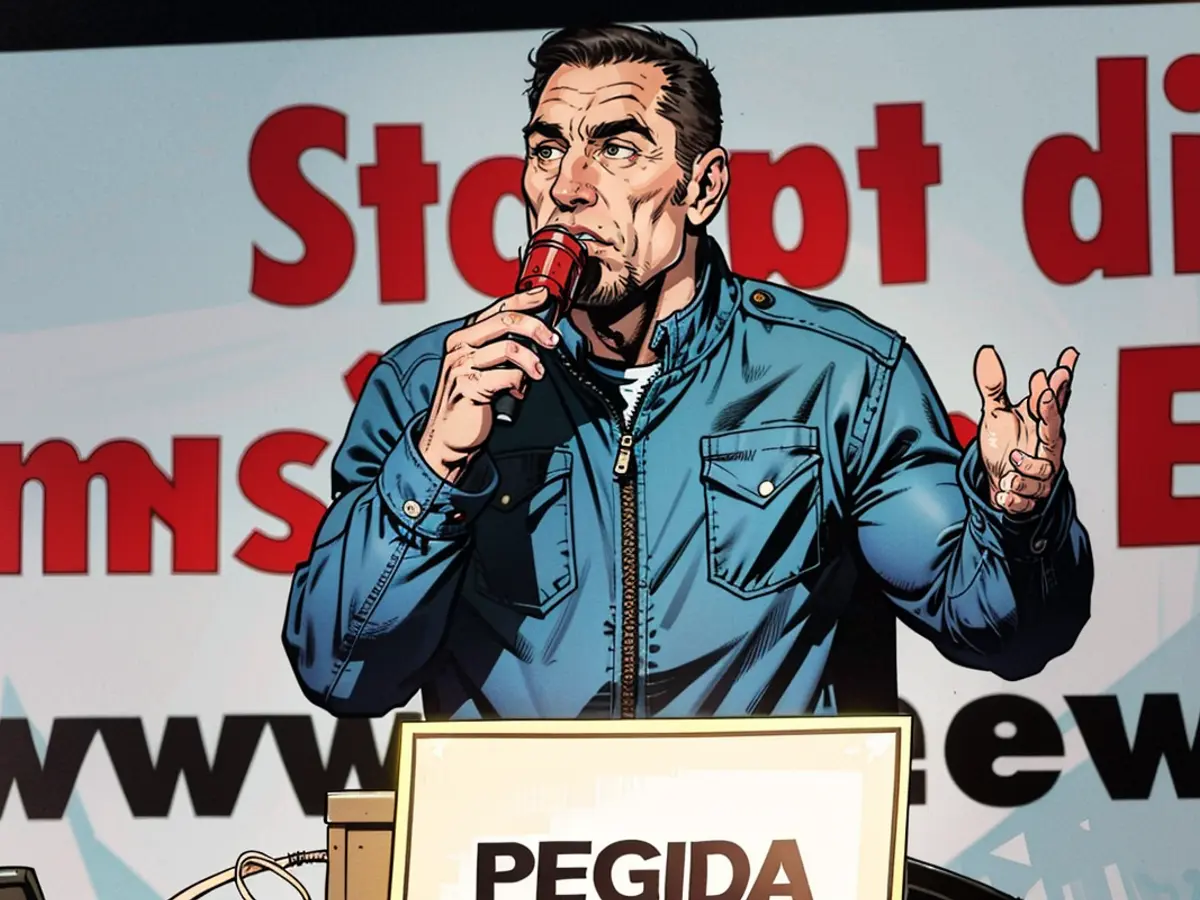Right-wing group Pegida plans to record their final rally in Dresden.
In recent times, the Pegida movement, known for its far-right ideologies, has been seldom visible on the streets. However, that era seems to be coming to an end. As per their statements, Pegida is conducting its final march today in Dresden, a city in the Saxon state of Germany. This marks the end of the demonstration series that spanned a decade and included 250 events.
According to Lutz Bachmann, the founder of Pegida, the reason for this decision is due to health and financial constraints. He further mentioned that they are in search of new ideas, dedicated individuals, and fresh faces to move forward. Bachmann mentioned plans for new formats such as a podcast and contributions to radio and television, pending final negotiations.
Political scientist Hans Vorländer from Dresden praised this decision as long overdue. He stated that the issues initially addressed by Pegida or presented in an extreme manner have been taken up and strengthened by other political forces, including the AfD, the right-wing extremist group Freie Sachsen, and the Identitarian Movement.
Pegida was established in October 2014 and identified itself as Patriotic Europeans against the Islamization of the West. In its early days, Pegida attracted massive crowds in Dresden, with support being much lower elsewhere. The German Office for the Protection of the Constitution classified Pegida as an extremist movement in 2021, and its leader, Lutz Bachmann, who has a history of convictions, was described as a right-wing extremist at the time.
Vorländer added that Pegida had played a significant role in shifting the discourse, contributing to radicalization, disinhibition, and coarsening, ultimately leading to a new East-West confrontation in Germany. The migration crisis gave Pegida, along with the AfD, a boost and led to another upswing in the fall of 2015 and 2016.
Vorländer also pointed out that Pegida not only served as a catalyst for protests in the realm of right-wing populists and extremists but also sparked mass demonstrations among the civil society on the other side. He previously referred to Pegida as a street pub and as an unambiguously right-wing movement.
Indeed, Pegida provided a platform for right-wing extremists from Germany and abroad, with Dutch right-wing populist Geert Wilders and multiple AfD speakers, including Thuringian state chairman Björn Höcke, appearing on its stage.
In recent years, the support for Pegida has waned, and the movement almost disappeared from public view. There were 200 rallies until the beginning of 2020, with only 49 occurring during the following 4.5 years. Now, with its 250th rally, the end seems to be in sight.
Lutz Bachmann, the founder of Pegida, announced that the final march of the movement would take place today in Dresden due to health and financial constraints, and expressed his desire for new ideas, dedicated individuals, and fresh faces to move forward.
Political scientist Hans Vorländer commended the decision to end Pegida's demonstration series, stating that the issues initially addressed by Pegida or presented in an extreme manner have been taken up by other political forces, including the AfD and the Identitarian Movement.








